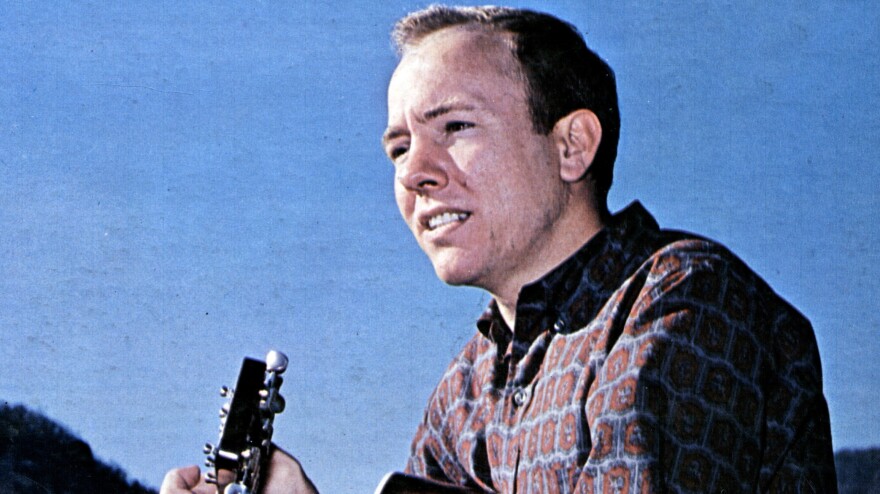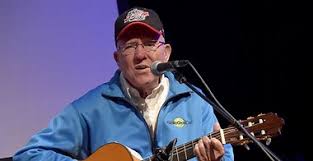
Billy Edd Wheeler (December 9, 1932 – September 16, 2024) was an extraordinary American songwriter, performer, writer, and visual artist whose contributions spanned across a variety of art forms. Best known for his impactful contributions to the world of country and folk music, Wheeler’s versatility as a multi-disciplinary artist set him apart from many of his contemporaries. His life was a testament to artistic diversity, and his legacy is one of both creative expression and storytelling that transcended traditional boundaries.
Early Life and Education
Billy Edward “Edd” Wheeler was born in the small Appalachian town of Boone County, West Virginia, on December 9, 1932. Growing up in a region known for its deep musical roots, particularly in bluegrass and folk, Wheeler was exposed to a wide variety of cultural influences from a young age. The natural beauty of the Appalachian Mountains and the rich musical traditions of the area would deeply shape Wheeler’s later creative endeavors.
Wheeler’s early exposure to music and storytelling laid the foundation for his diverse career. He pursued higher education and attended Warren Wilson College, followed by Berea College in Kentucky, where he earned a degree in English and Speech. Afterward, Wheeler went on to study at the Yale School of Drama, earning a master’s degree in playwriting. These experiences allowed him to hone his skills not only as a writer but also as a performer, setting the stage for his success in multiple artistic fields.
Songwriting Career
Billy Edd Wheeler made his greatest impact in the world of music, particularly as a songwriter. Throughout the 1960s and 1970s, Wheeler wrote a number of hit songs that would become classics in the country and folk music genres. His songwriting was marked by its simplicity, emotional depth, and evocative storytelling, which resonated deeply with audiences.
One of Wheeler’s most famous songs is “Jackson,” a duet famously recorded by Johnny Cash and June Carter in 1967. The song tells the story of a married couple growing restless with one another and seeking adventure and excitement in the city of Jackson. With its catchy melody and playful lyrics, “Jackson” became a major hit and won a Grammy Award for Best Country & Western Performance Duet, Trio or Group. The song’s success cemented Wheeler’s place as one of the great songwriters of his era.
Another of Wheeler’s well-known compositions is “Coward of the County,” a song made famous by Kenny Rogers in 1979. The song tells the tale of a young man named Tommy, who is determined to avoid violence at all costs, but is eventually pushed to stand up for his honor. The narrative style of the song, combined with its moral undertones, made it a hit in both the country and pop charts, showcasing Wheeler’s ability to craft songs that could appeal to a broad audience.
Billy Edd Wheeler also wrote “The Reverend Mr. Black,” a song about a preacher who stands firm in his convictions, which became a hit for The Kingston Trio in 1963. The song’s themes of faith, morality, and determination were characteristic of Wheeler’s style, which often blended personal and universal themes in a way that resonated with listeners.
Throughout his songwriting career, Wheeler penned over 500 songs, with many of them recorded by prominent artists such as Elvis Presley, Neil Young, and Judy Collins. His ability to craft lyrics that told stories in a relatable and emotionally compelling way made his songs timeless, and his influence on American music remains significant.
Writing and Playwriting
In addition to his success as a songwriter, Billy Edd Wheeler was also an accomplished writer and playwright. His literary output included novels, plays, and poetry, all of which were infused with the same spirit of storytelling that defined his music. Wheeler’s plays often explored the complexities of human relationships, societal norms, and the tension between individual desires and collective expectations.
One of Billy Edd Wheeler’s most well-known plays is “Hatfields & McCoys,” a historical drama based on the infamous feud between two Appalachian families. The play was well-received for its nuanced portrayal of the conflict and its exploration of themes such as loyalty, vengeance, and the impact of generational animosities. Wheeler’s deep understanding of Appalachian culture, drawn from his own upbringing, allowed him to bring authenticity and depth to the story.
In addition to his playwriting, Wheeler authored several books, including memoirs and collections of poetry. His writing often reflected his personal experiences growing up in Appalachia, and his work contributed to the broader understanding of life in rural America. Wheeler’s literary contributions were not confined to any single genre, as he moved seamlessly between fiction, drama, and poetry, further showcasing his versatility as a writer.
Visual Art
Billy Edd Wheeler’s talents extended beyond the written and spoken word, as he was also an accomplished visual artist. His artwork, like his music and writing, was deeply influenced by his Appalachian roots and his connection to the natural world. Wheeler’s visual art often depicted scenes from rural life, landscapes, and nature, rendered in a style that was both impressionistic and deeply personal.
Wheeler’s visual work was exhibited in galleries throughout the United States, earning him recognition as a talented painter in his own right. Although he did not achieve the same level of fame in the art world as he did in music or writing, his contributions to visual art were nonetheless significant. For Wheeler, painting was another form of storytelling—a way to express his emotions, experiences, and worldview through a different medium.

Performance and Legacy
In addition to his roles as a songwriter, writer, and artist, Billy Edd Wheeler was also a gifted performer. He regularly performed his own songs and participated in musical collaborations throughout his career. His live performances were marked by their warmth and authenticity, as Wheeler had a natural ability to connect with his audience through his music and stories.
Wheeler’s influence on American music and culture is lasting. His songs have been covered by countless artists across multiple generations, and his ability to tell stories through his music has left an indelible mark on the country and folk genres. Additionally, his work as a playwright and visual artist further cements his status as a multifaceted artist whose creativity knew no bounds.
In a career spanning more than six decades, Billy Edd Wheeler’s artistic output was characterized by a deep connection to the human experience and a profound respect for the power of storytelling. Whether through a simple folk song, a dramatic play, or a painting, Billy Edward “Edd” Wheeler always sought to tell stories that touched the heart, stirred the mind, and celebrated the beauty of life. His passing marks the end of an era, but his art will live on, continuing to speak to those who seek meaning and connection in the world around them.
Billy Edd Wheeler died at his home in Swannanoa, North Carolina, on September 16, 2024, at the age of 91.
Check out Billy Edd Wheeler on Amazon.
.

